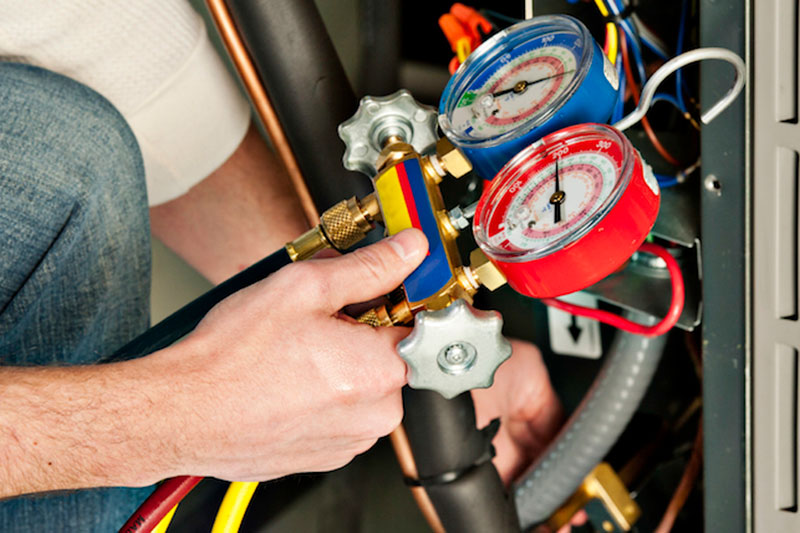
You might not think often about how your air conditioner works, but it requires refrigerant to keep your house fresh. This refrigerant is controlled by environmental regulation, because of the chemicals it contains.
Subject to when your air conditioner was added to your home, it may need R-22, R-410A or R-32 refrigerant. We’ll discuss the differences and which air conditioner refrigerants are being phased out in Huntingburg, in addition to how these phaseouts have on influence on you.
What’s R-22 and Why Is It Phased Out?
If your air conditioner was put in before 2010, it possibly contains Freon®. You can learn if your air conditioner contains it by calling us at 812-200-5844. You can also look at the name plate on your air conditioner condenser, which is found outside your house. This sticker will include details on what type of refrigerant your AC has.
Freon, which is also known as R-22, has chlorine. Scientists consider this chemical to be bad for the earth’s ozone layer and one that prompts global warming. The Environmental Protection Agency, which manages refrigerants in the United States, barred its production and import in January 2020.
I Have a R-22 Air Conditioner. Should I Replace It?
It varies. If your air conditioning is running fine, you can continue to run it. With regular air conditioner maintenance, you can expect your air conditioning to operate around 15–20 years. However, the Department of Energy reports that removing a 10-year-old air conditioner could save you 20–40% on annual cooling costs!
If you don’t replace your air conditioner, it may cause difficulties if you require air conditioning repair in the future, specifically for refrigerant. Repairs may be higher-priced, since only limited quantities of recycled and reclaimed R-22 is on hand.
With the end of R-22, a lot of new air conditioners now have Puron®. Also called R-410A, this refrigerant was developed to keep the ozone layer strong. As it calls for an incompatible pressure level, it isn’t compatible with air conditioners that need R-22 for cooling.
However, Puron still has the potential to lead to global warming. As a consequence, it could also eventually be discontinued. Although it hasn’t been mandated yet for residential air conditioners, it’s expected sometime this decade.
What Refrigerant Will Take Over R-410A?
In preparation of the discontinuation, some manufacturers have initiated using R-32 in new air conditioners. This refrigerant ranks low for global warming likelihood—around one-third less than R-410A. And it also decreases energy consumption by about 10%, according to the Intergovernmental Panel on Climate Change’s Fourth Assessment Report. That’s savings that could be passed on to you through your utility costs.
Dearing's Service & Solutions Can Assist with All Your Air Conditioning Needs
In short, the changes to air conditioner refrigerant probably won’t concern you a whole lot until you need repairs. But as we discussed beforehand, refrigerant-related repairs might be pricier due to the low amounts that are accessible.
Not to mention, your air conditioner usually stops working at the worst time, typically on the hottest day when we’re experiencing a lot of other appointments for AC repair.
If your air conditioner relies on a discontinued refrigerant or is more than 15 years old, we advise upgrading to an up-to-date, energy-efficient air conditioner. This delivers a trouble-free summer and might even reduce your cooling costs, especially if you select an ENERGY STAR®-rated system. Plus, Dearing's Service & Solutions has many financing programs to make your new air conditioner work with your budget. Contact us at 812-200-5844 to begin right away with a free estimate.
